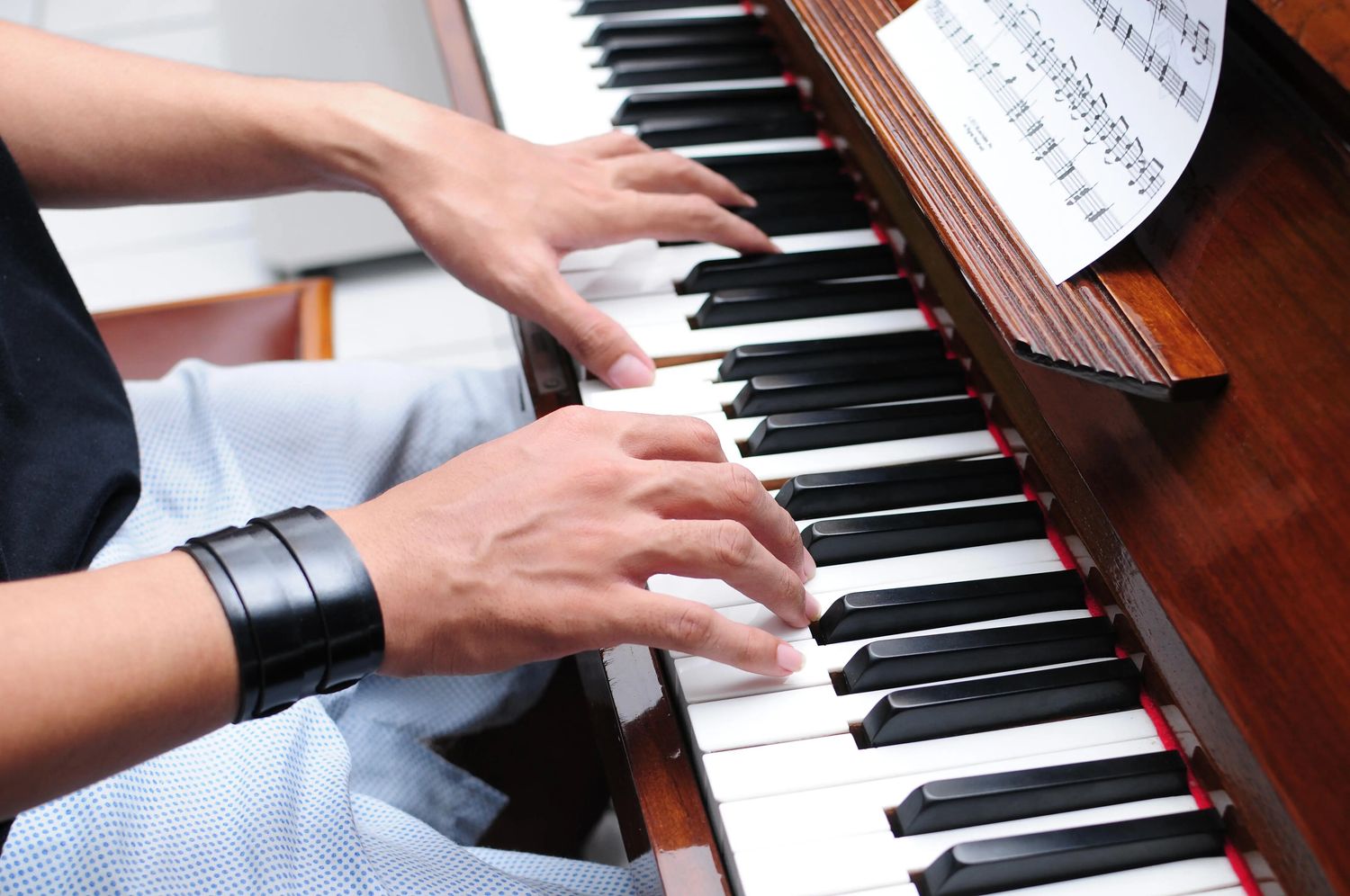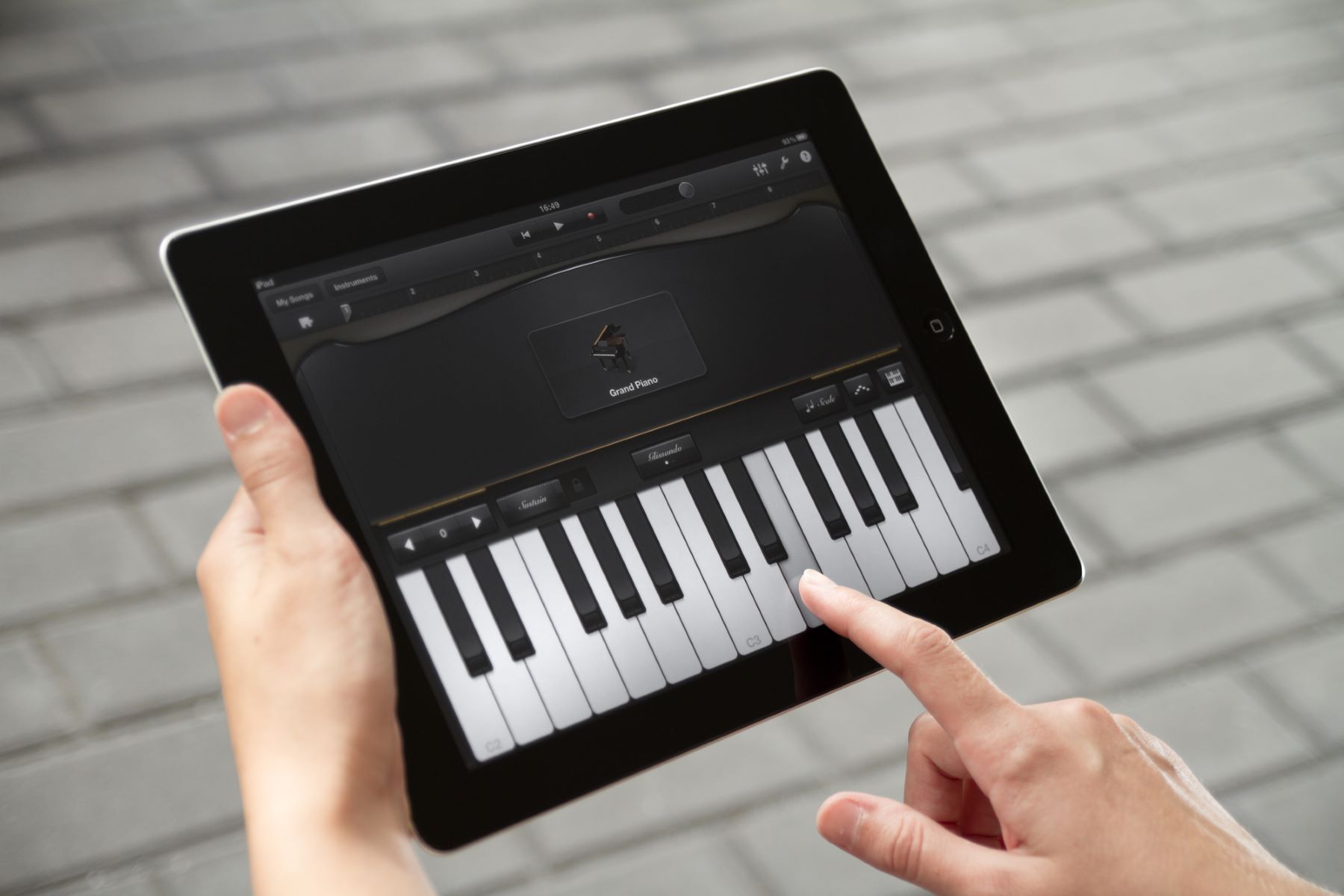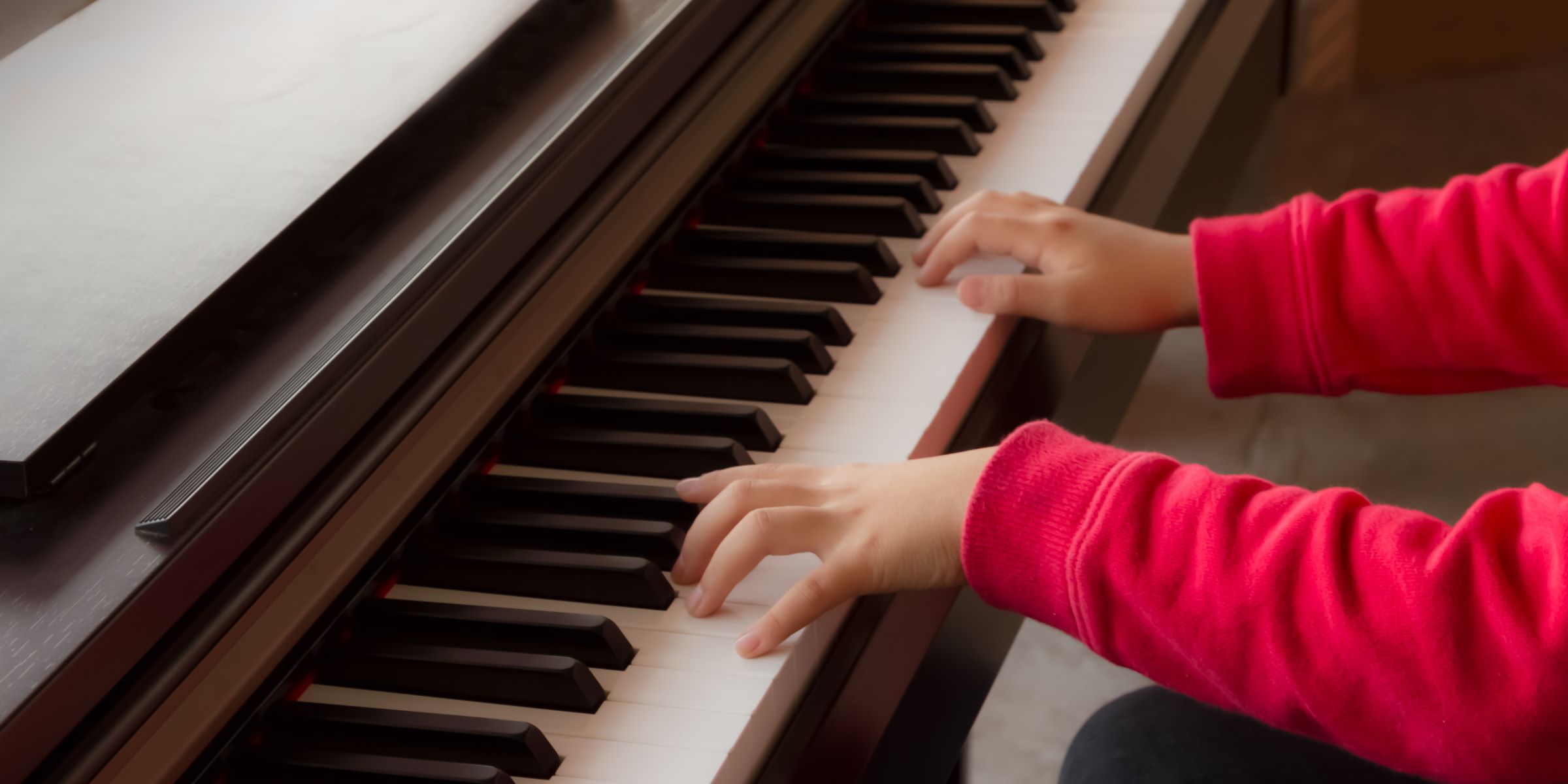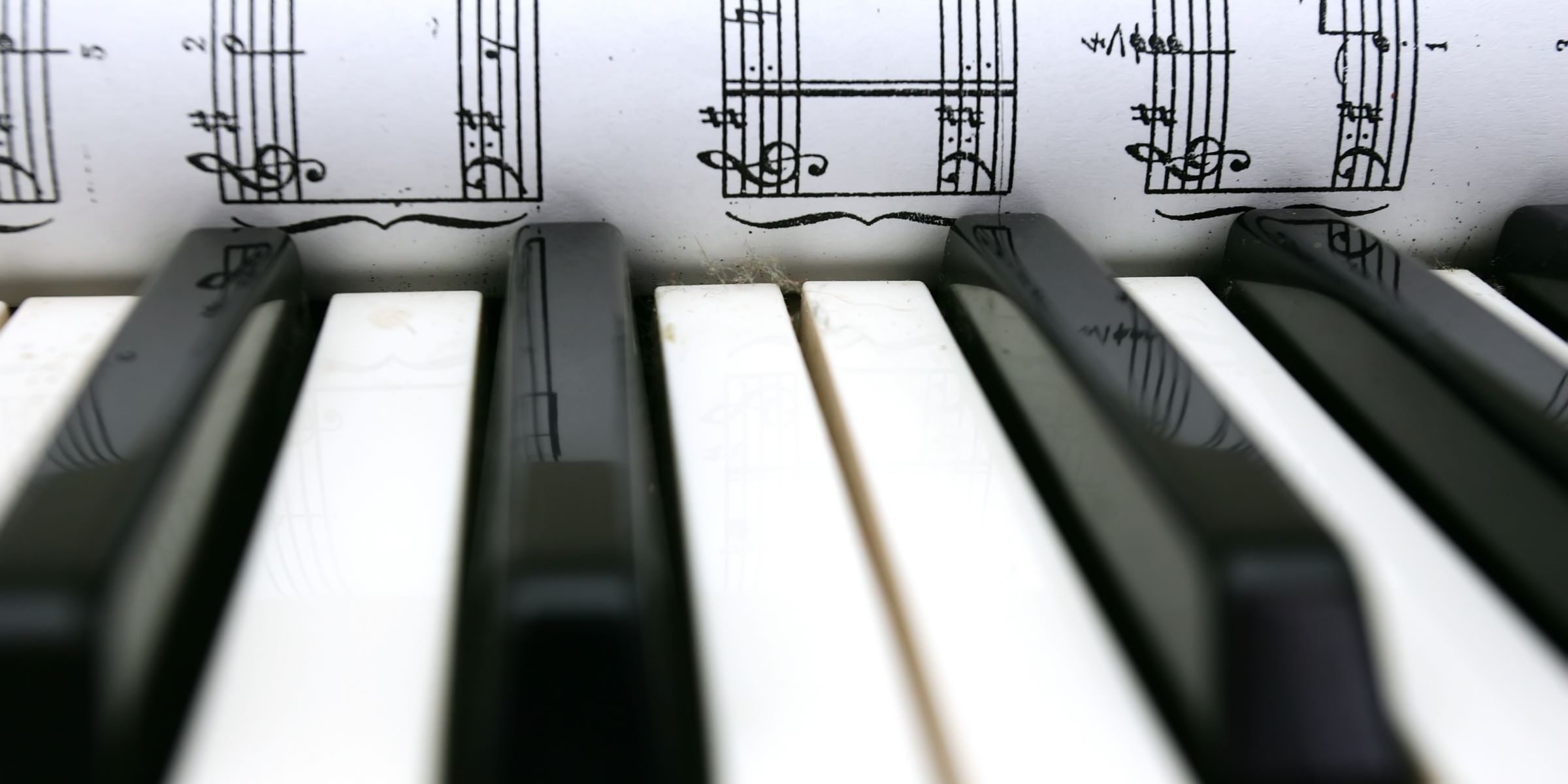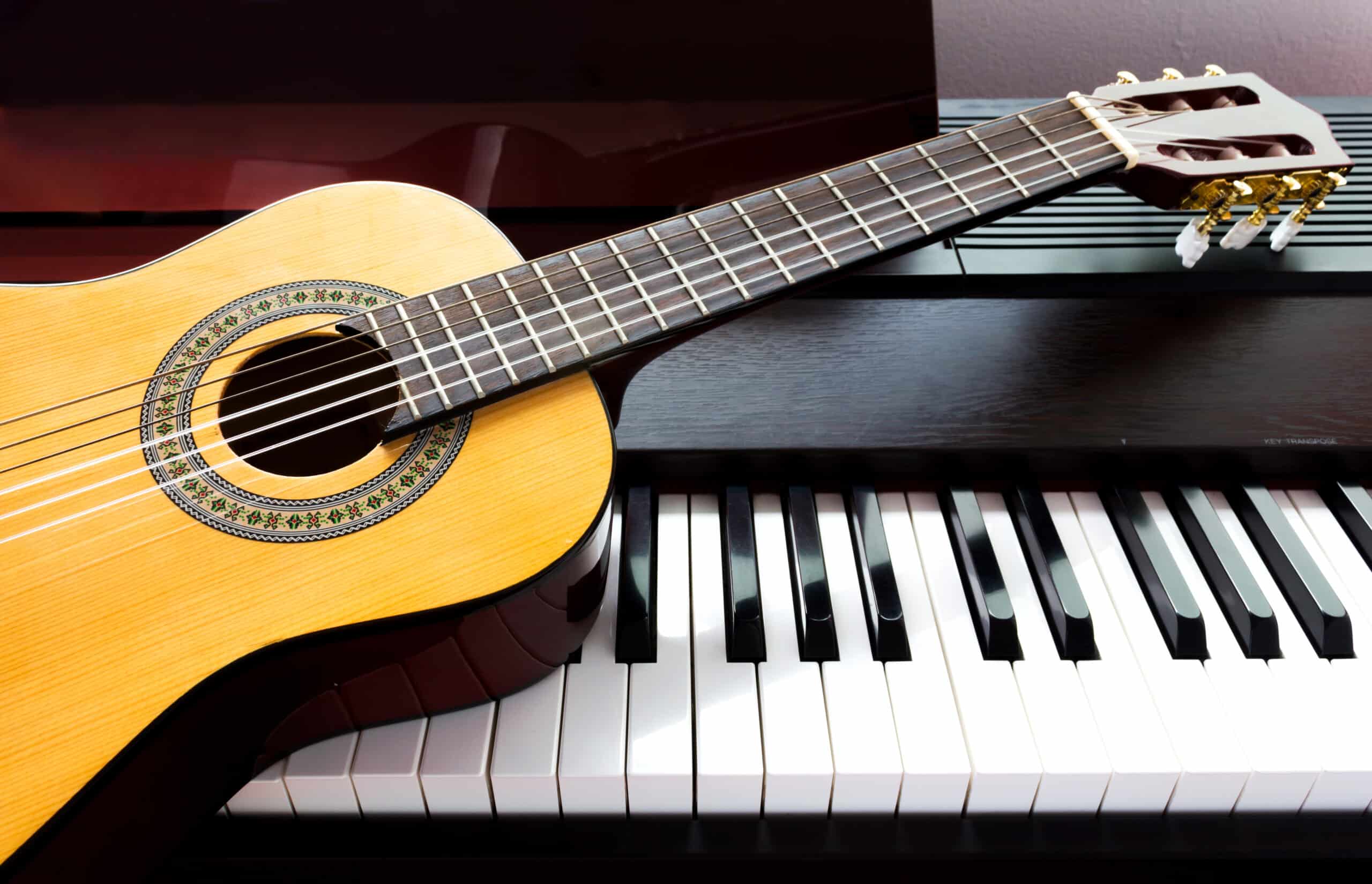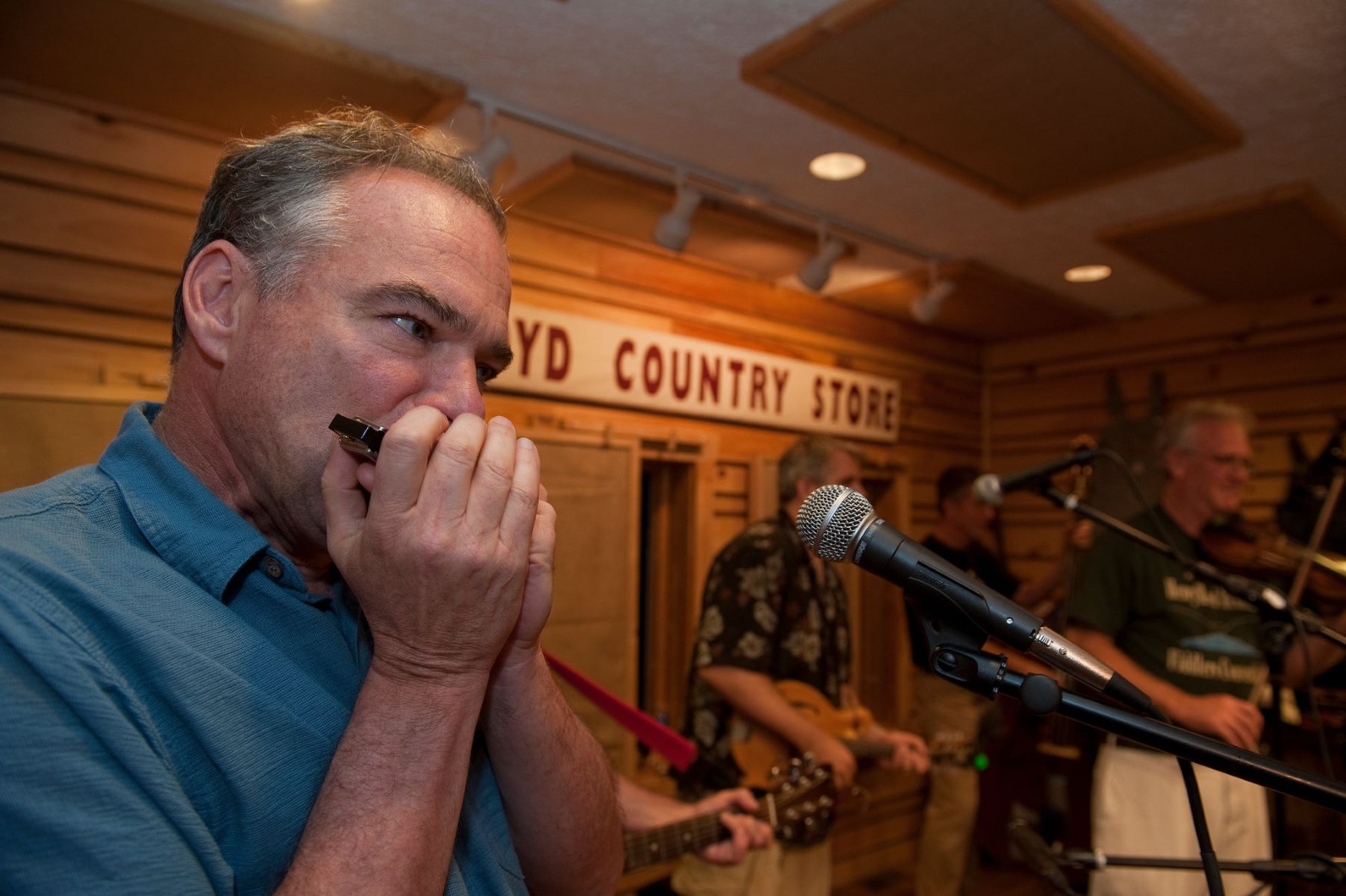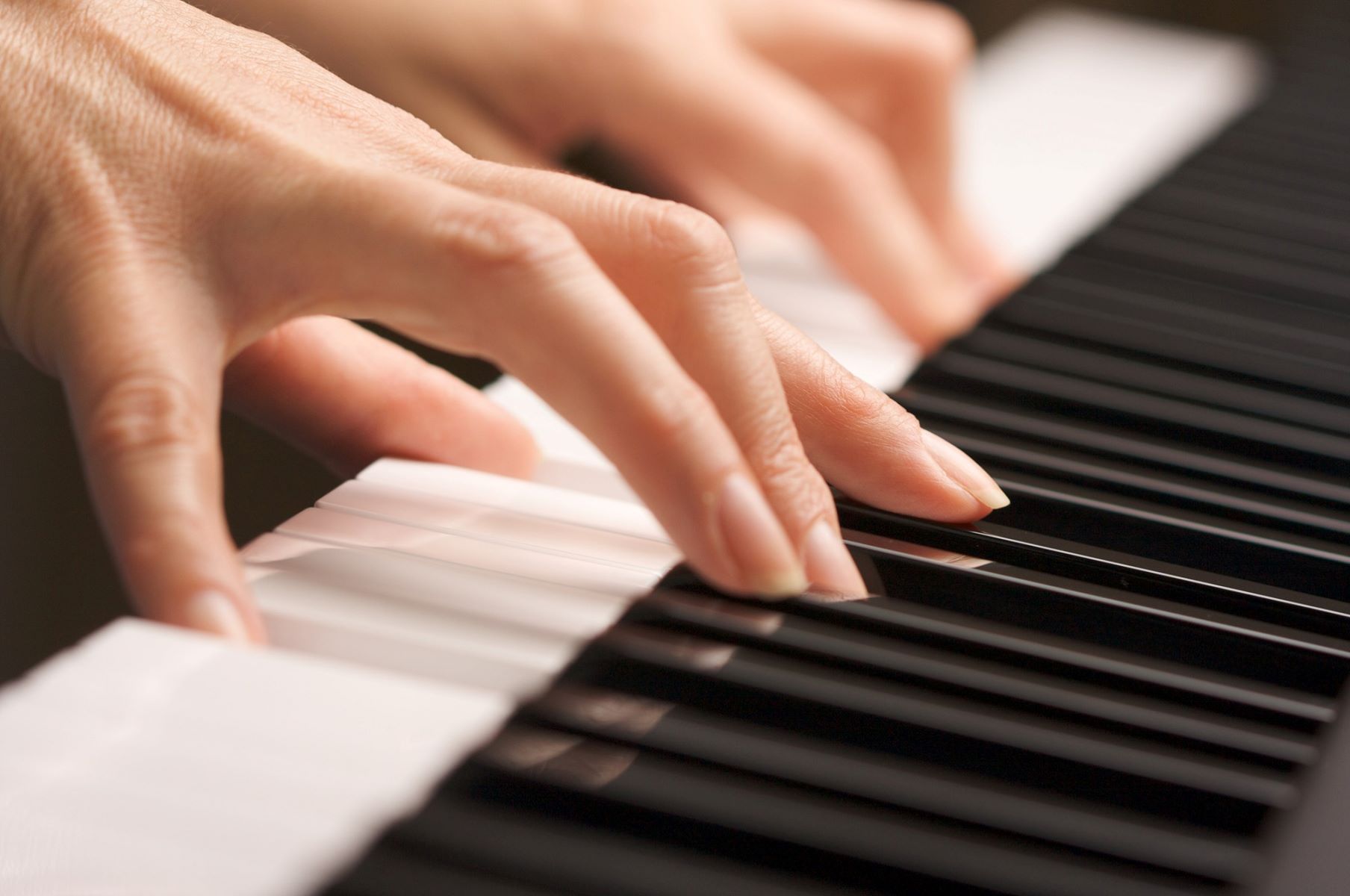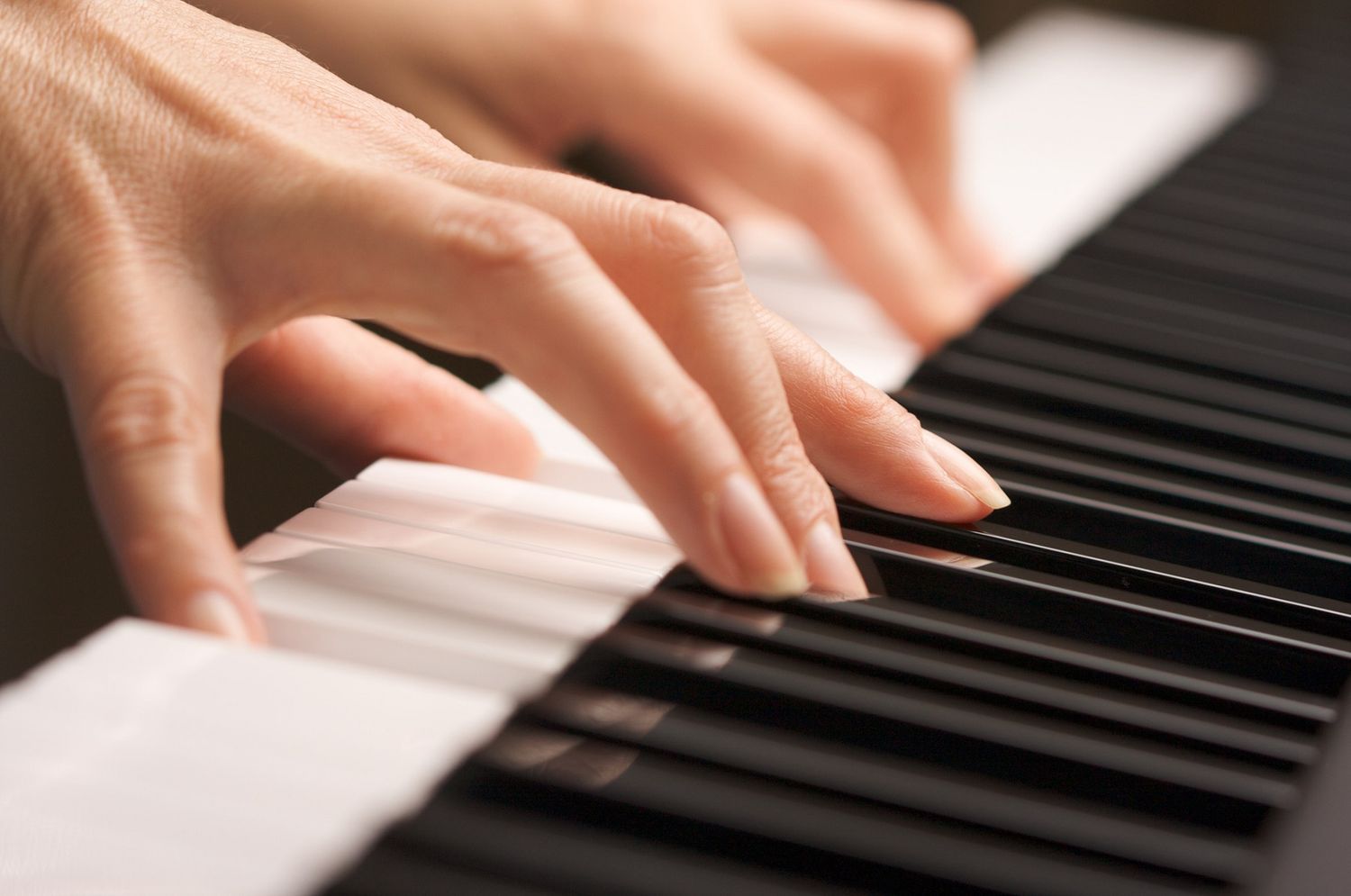Home>Instruments>Piano>When Did Elvis Learn To Play The Piano
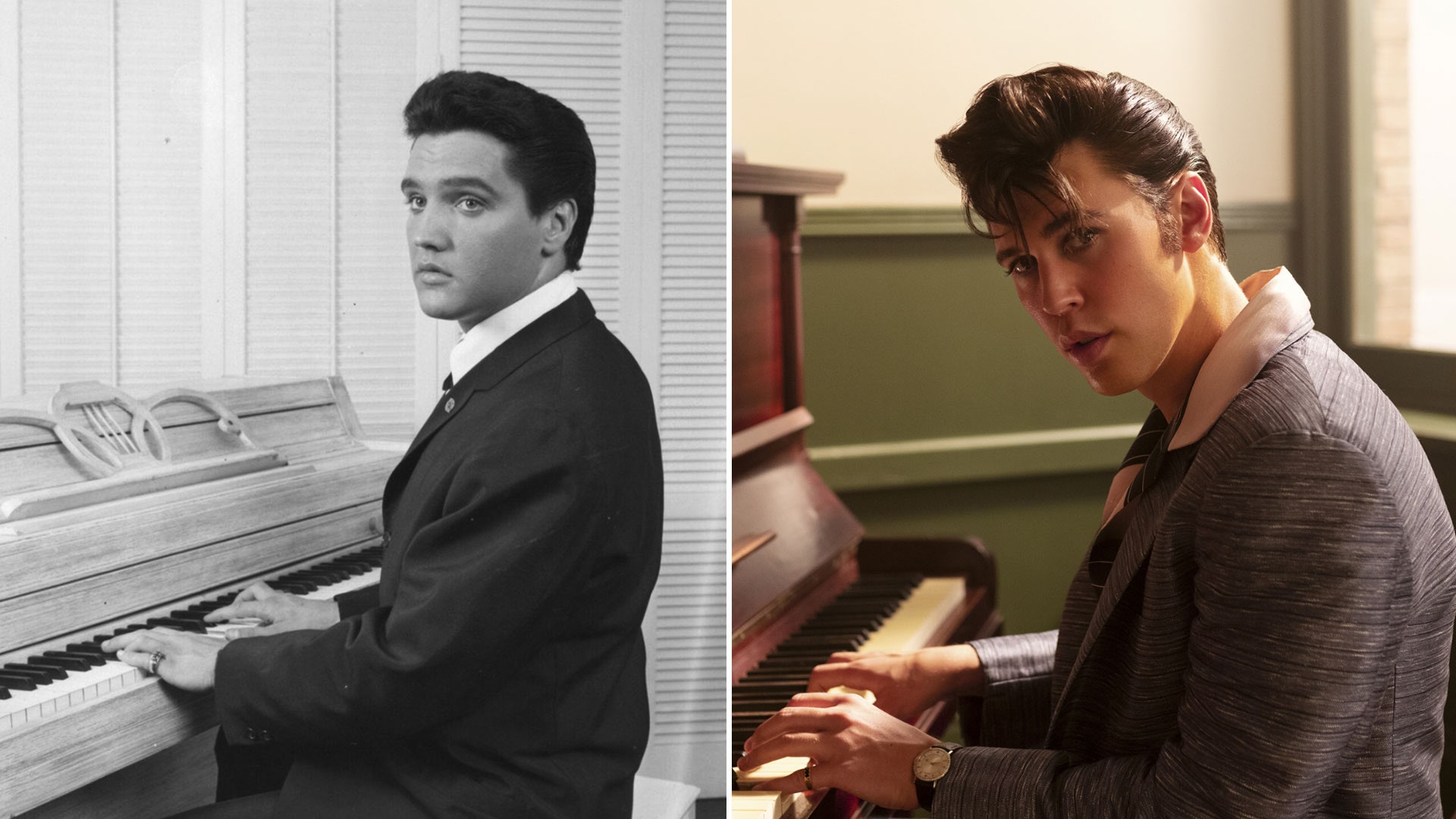

Piano
When Did Elvis Learn To Play The Piano
Published: February 10, 2024
Discover the timeline of Elvis Presley's piano skills and his musical journey. Learn about the iconic musician's piano learning journey.
(Many of the links in this article redirect to a specific reviewed product. Your purchase of these products through affiliate links helps to generate commission for AudioLover.com, at no extra cost. Learn more)
Table of Contents
Introduction
Elvis Presley, the King of Rock and Roll, is renowned for his mesmerizing voice, charismatic stage presence, and electrifying performances. However, behind the scenes, Elvis's musical journey was shaped by various influences and experiences that contributed to his legendary status. One often overlooked aspect of his musical prowess is his proficiency on the piano. In this article, we delve into the intriguing question: When did Elvis learn to play the piano?
Elvis's piano skills added depth and versatility to his musical repertoire, allowing him to infuse his performances with soul-stirring melodies and captivating rhythms. By exploring the early years of Elvis, his musical influences, and the pivotal moments that shaped his piano-playing abilities, we gain a deeper understanding of the multifaceted talents that propelled him to superstardom.
Join us on a captivating journey through the life and music of Elvis Presley as we uncover the untold story of his piano mastery and the profound impact it had on his illustrious career. Let's embark on this musical odyssey to unravel the mysteries behind Elvis's piano prowess and the pivotal moments that shaped his legendary musical legacy.
Early Years of Elvis
Elvis Aaron Presley was born on January 8, 1935, in Tupelo, Mississippi, to humble beginnings. His love for music blossomed at an early age, nurtured by the gospel tunes he heard at the church where his family worshipped. The soul-stirring melodies and heartfelt lyrics of gospel music left an indelible imprint on young Elvis, igniting a passion for music that would shape his destiny.
Elvis’s family moved to Memphis, Tennessee, when he was 13 years old. It was in Memphis, a melting pot of musical genres, that Elvis’s musical journey truly began to take flight. The vibrant sounds of blues, country, and rhythm and blues permeated the air, influencing the impressionable young Elvis and shaping his musical sensibilities.
During his formative years, Elvis immersed himself in the rich tapestry of musical styles that surrounded him, drawing inspiration from artists such as Roy Hamilton, Ivory Joe Hunter, and the legendary rhythm and blues singer, Arthur “Big Boy” Crudup. These diverse influences would later converge to form the distinctive musical fusion that became synonymous with Elvis Presley.
Elvis’s early exposure to a myriad of musical genres laid the foundation for his future innovation and experimentation. His innate ability to synthesize various musical styles would set him apart as a trailblazer in the world of popular music. As he honed his vocal talents and stage presence, another facet of his musical prowess awaited discovery – his proficiency on the piano.
Stay tuned as we delve deeper into the musical influences that shaped Elvis’s formative years and set the stage for his remarkable journey to stardom.
Musical Influences
Elvis Presley’s musical journey was profoundly shaped by a diverse array of influences that left an indelible mark on his artistic sensibilities. His exposure to gospel music in his formative years instilled in him a deep appreciation for the emotive power of music and the raw, unbridled passion conveyed through soul-stirring melodies.
As Elvis transitioned into adolescence, the vibrant musical tapestry of Memphis, Tennessee, became a wellspring of inspiration. The city’s rich amalgamation of blues, country, and rhythm and blues provided a fertile ground for Elvis to cultivate his musical identity. Artists such as B.B. King, Muddy Waters, and Howlin’ Wolf captivated Elvis with their electrifying performances, igniting his imagination and fueling his artistic aspirations.
Elvis’s musical odyssey was further enriched by the captivating sounds of rhythm and blues, a genre that permeated the airwaves and resonated deeply with his evolving musical palate. The soulful crooning of artists like Clyde McPhatter and Jackie Wilson left an indelible imprint on Elvis, influencing his vocal stylings and infusing his performances with an irresistible blend of fervor and finesse.
However, it was the profound impact of African-American gospel music that reverberated most profoundly within Elvis’s soul. The impassioned vocal delivery and fervent spiritual fervor embodied in the music of artists such as Sister Rosetta Tharpe and Mahalia Jackson stirred Elvis to his core, inspiring him to channel that same fervent energy into his own musical expressions.
Elvis’s exposure to a kaleidoscope of musical genres, from gospel to rhythm and blues, laid the groundwork for his future innovation and artistic daring. These diverse influences converged to form the bedrock of Elvis’s musical identity, propelling him to unprecedented heights of fame and acclaim.
Join us as we unravel the next chapter of Elvis’s musical odyssey and explore the pivotal moments that led to his mastery of the piano, a skill that would elevate his performances to new heights of artistic brilliance.
Learning to Play the Piano
Elvis Presley’s journey to mastering the piano was a testament to his unwavering dedication and passion for music. While he is primarily celebrated for his vocal prowess and dynamic stage presence, his proficiency on the piano added an extra dimension to his performances, showcasing his versatility and musical dexterity.
Elvis’s early exposure to gospel music laid the foundation for his musical inclinations, instilling in him a deep reverence for the expressive power of the piano. As a young aspiring musician, Elvis was captivated by the soul-stirring hymns and impassioned performances that emanated from the church pianist’s nimble fingers. It was here that Elvis’s fascination with the piano took root, igniting a fervent desire to master the instrument and harness its emotive potential.
Driven by an insatiable thirst for musical expression, Elvis embarked on a dedicated pursuit of piano proficiency. His innate musical acumen and unyielding determination propelled him to devote countless hours to honing his craft, practicing diligently to refine his technique and expand his repertoire.
Elvis’s immersion in the vibrant musical milieu of Memphis provided him with ample opportunities to further his musical education. He sought guidance from seasoned pianists and mentors who recognized his raw talent and nurtured his burgeoning skills. Their invaluable tutelage and mentorship played a pivotal role in shaping Elvis’s piano-playing abilities, equipping him with the technical prowess and artistic finesse that would later captivate audiences around the world.
As Elvis’s musical journey unfolded, his proficiency on the piano became an integral facet of his artistry, enriching his performances with soulful melodies and captivating rhythms. Whether he was crooning heartfelt ballads or delivering high-octane rock ‘n’ roll anthems, the piano served as a potent instrument through which Elvis could channel his profound musicality and connect with audiences on a deeper emotional level.
Join us as we delve deeper into the profound impact of Elvis’s piano mastery on his illustrious career and the enduring legacy of his musical innovation.
Impact on Elvis’s Career
Elvis Presley’s mastery of the piano wielded a profound influence on his career, elevating his performances to unprecedented heights of artistic brilliance and cementing his status as a musical trailblazer. His adeptness at the piano not only showcased his versatility as a musician but also imbued his live shows and studio recordings with an unparalleled depth and dynamism.
As Elvis’s fame soared to stratospheric heights, his piano prowess became a defining element of his iconic stage presence. Whether he was delivering soul-stirring renditions of gospel classics or igniting audiences with the fervent energy of rock ‘n’ roll, the piano served as a potent vehicle through which Elvis could unleash his musical virtuosity and captivate legions of adoring fans.
Furthermore, Elvis’s command of the piano allowed him to explore a diverse range of musical styles, from blues-infused ballads to rollicking rockabilly anthems. His ability to infuse his performances with the evocative strains of the piano added an extra layer of emotional depth and nuance, establishing him as a consummate performer with an unparalleled ability to connect with audiences on a profound level.
Moreover, Elvis’s piano proficiency expanded the sonic palette of his recordings, enabling him to experiment with innovative arrangements and musical textures. His collaborations with renowned session musicians and arrangers were enriched by his intimate understanding of the piano, resulting in timeless recordings that continue to resonate with listeners across generations.
Elvis’s enduring legacy as a musical pioneer is irrevocably intertwined with his mastery of the piano. His innovative approach to the instrument transcended traditional boundaries, leaving an indelible mark on the landscape of popular music and inspiring countless artists to embrace the piano as a vehicle for boundless creativity and expression.
Join us as we unravel the enduring impact of Elvis’s piano mastery on the fabric of popular music and celebrate the enduring legacy of the King of Rock and Roll.
Conclusion
Elvis Presley’s journey to mastering the piano epitomizes the unwavering dedication and boundless passion that characterized his musical odyssey. From his formative years in the vibrant musical milieu of Memphis to his meteoric rise to global acclaim, Elvis’s proficiency on the piano added an indelible dimension to his artistry, showcasing his versatility and innate musical genius.
His early exposure to gospel music and the rich tapestry of musical genres in Memphis laid the groundwork for his piano-playing abilities, imbuing him with a deep reverence for the emotive power of the instrument. As he honed his craft and expanded his repertoire, the piano became a potent vehicle through which Elvis could channel his profound musicality and connect with audiences on a visceral level.
Elvis’s mastery of the piano reverberated throughout his career, enriching his live performances and studio recordings with soul-stirring melodies and captivating rhythms. His ability to seamlessly integrate the piano into a diverse range of musical styles solidified his status as a trailblazer in the realm of popular music, inspiring generations of musicians to embrace the instrument as a conduit for boundless creativity and expression.
As we reflect on the enduring legacy of Elvis Presley, it becomes evident that his proficiency on the piano was not merely a technical skill but a profound manifestation of his artistic vision and unwavering commitment to musical excellence. His innovative approach to the instrument transcended conventional boundaries, leaving an indelible mark on the fabric of popular music and ensuring his legacy as the King of Rock and Roll endures for generations to come.
In celebrating the pivotal role of the piano in Elvis’s musical journey, we pay homage to an icon whose enduring influence continues to resonate across the expanse of musical history, inspiring new generations to embrace the transformative power of music.

